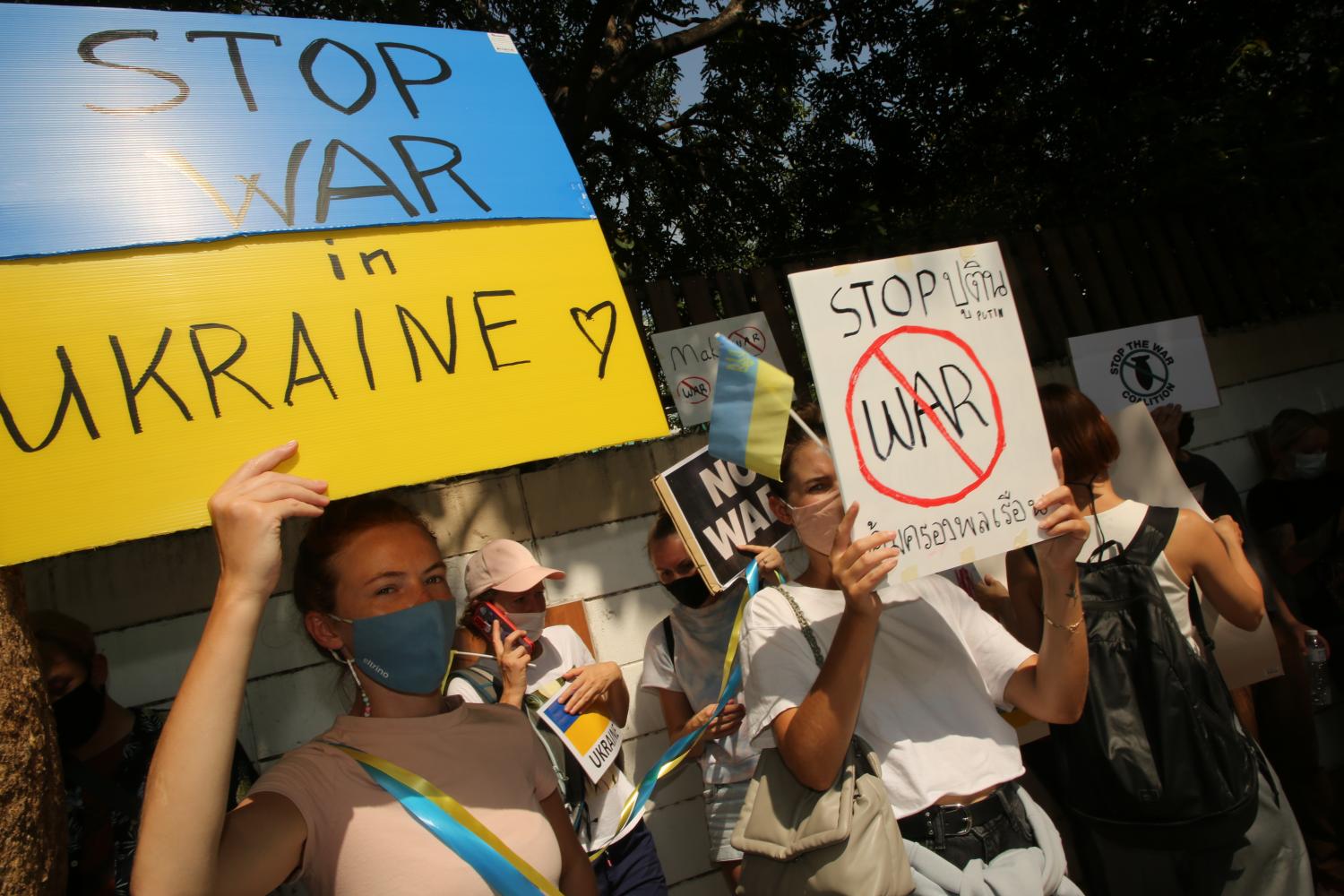
The Bank of Thailand (BoT) is concerned about inflation because of the Russia-Ukraine conflict, but believes the Thai economy will continue to recover this year.
The Russian attack on Ukraine will push up global energy prices as the countries are major producers of commodities and fossil fuels, playing crucial roles in the global supply chains of such goods. With this scenario, the Thai economy could face a higher inflation rate, said senior BoT director Chayawadee Chai-Anant.
Earlier the central bank forecast that Thailand would face rising inflation in the first half of this year, in line with spiking global prices caused by the impact of Covid-19, she said.
The central bank will further monitor the country's inflation rate amid greater uncertainty, and the bank will review its inflation rate projection again, she said.
The central bank set the headline inflation target at a range of 1-3% this year.
Besides higher energy prices and worldwide inflation, the Russia-Ukraine conflict could also ramp up global financial market volatility while dampening down global economic recovery.
Given the Russian invasion of Ukraine, the Thai baht has been experiencing higher volatility compared with the US dollar. However, this has not had a significant impact on Thailand's exports to Russia and Ukraine as Thai exports have only marginal exposures to the two countries.
Western sanctions on Russia, including cutting off a number of its banks from the SWIFT interbank payments system, have meant the BoT needs to monitor the severity of the impact, including if additional Russian banks are to be cut off.
However, cutting off Russian banks from SWIFT would mainly impact Russia domestically.
Ms Chayawadee said Thai banks could manage and help customers who export to and import from Russia regarding payments, but the central bank would closely monitor the situation.
In related news, the BoT on Monday said Thai economic growth slowed in January due to various factors including the Covid-19 Omicron variant.
Ms Chayawadee said foreign tourist figures also declined due to the temporary suspension of the Test and Go programme. The number of foreign tourist arrivals, after a seasonal adjustment, fell to 133,903 in January from 230,497 in the previous month due to the suspension of Test and Go from Dec 21, 2021, to Jan 31, 2022, in conjunction with Omicron outbreaks in many countries.
Private consumption indicators in January, after seasonal adjustments, decreased by 0.4% after enjoying a growth rate of 3.4% in the previous month. This was due to the worsening Covid-19 situation and stricter containment measures, which hit overall economic activities and consumer confidence.
Even though the Thai economy slowed in January compared with the previous month, economic growth in the fourth quarter of 2021 was better than expected and would be a key source of momentum continuing to support the Thai economic recovery this year, Ms Chayawadee said.







